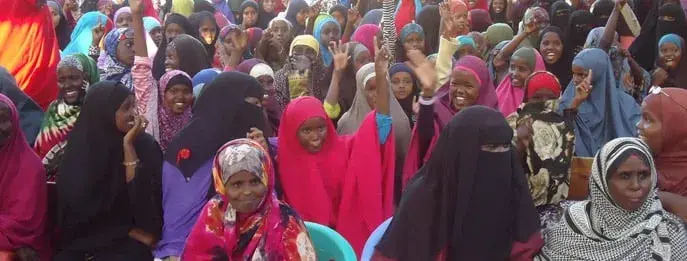AMUDAT, Uganda — It was a moment filled with emotion, that hot and sunny afternoon in a little village of Amudat, north-east Uganda. A group of women once committed to female genital mutilation rose up and publically denounced the practice. To prove their intent, they surrendered their cutting knives to the authorities.

Dancing to mellow music pulsating with rhythmic drumming, the colourfully dressed women cutters snaked their way to the main table and, one by one, handed their much-treasured tools – their cutting knives – to Uganda’s Minister of Gender and Cultural Affairs, Ms. Rukia Nakadama.
It was an inspiring moment. The women had travelled more than 70 kilometres from Karita Sub-County to take part in an event to commemorate the ninth International Day of Zero Tolerance against FGM at Pokot Senior Secondary school in Amudat district on 6 February.
Crowd cheers as cutters publicly renounce FGM
Amid cheers from the crowd, they told their audience they had taken a decision to stop the practice after understanding that female genital mutilation (FGM) was harmful and had a negative impact on the lives of women and girls. They had been educated about the negative consequences of FGM by REACH (Reproductive, Educative and Community Health Programme), a community-based organization supported by UNFPA.
“I decided I did not want to involve myself in this practice anymore. I don’t want to spill innocent young girls’ blood anymore,” said one of the former cutters, Margaret Chebet Kapkoikoi, who has been cutting girls for over four years. She also attributed her decision to retire from cutting to the teachings of the church.
Ms. Nakadama praised the former cutters for their gesture and their commitment to eradicate the harmful practice. “The handing over of these knives today is a positive gesture that society has now declared the abandonment of the practice,” said Nakadama.





